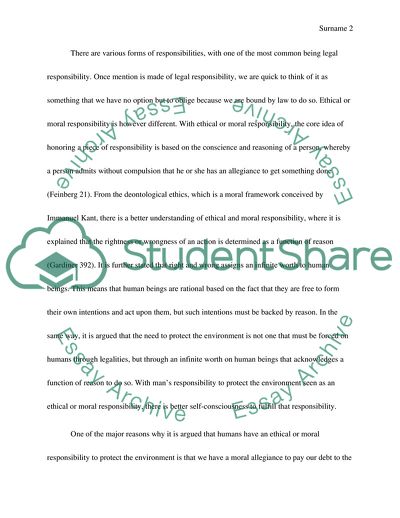Cite this document
(Do Humans Have an Ethical or Moral Responsibility to Protect the Essay - 4, n.d.)
Do Humans Have an Ethical or Moral Responsibility to Protect the Essay - 4. https://studentshare.org/environmental-studies/1829815-environmental-studies
Do Humans Have an Ethical or Moral Responsibility to Protect the Essay - 4. https://studentshare.org/environmental-studies/1829815-environmental-studies
(Do Humans Have an Ethical or Moral Responsibility to Protect the Essay - 4)
Do Humans Have an Ethical or Moral Responsibility to Protect the Essay - 4. https://studentshare.org/environmental-studies/1829815-environmental-studies.
Do Humans Have an Ethical or Moral Responsibility to Protect the Essay - 4. https://studentshare.org/environmental-studies/1829815-environmental-studies.
“Do Humans Have an Ethical or Moral Responsibility to Protect the Essay - 4”. https://studentshare.org/environmental-studies/1829815-environmental-studies.


